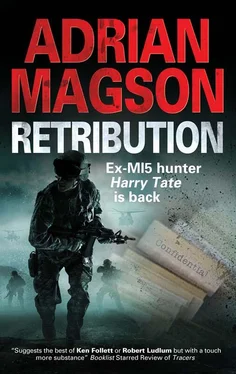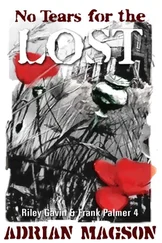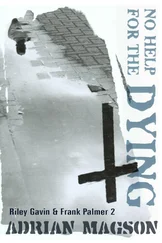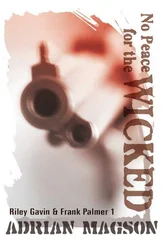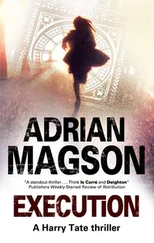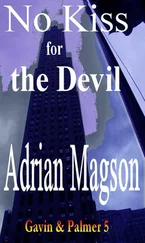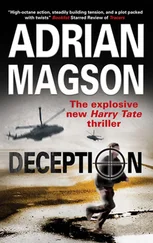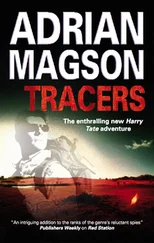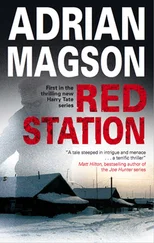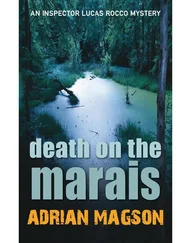Adrian Magson - Retribution
Здесь есть возможность читать онлайн «Adrian Magson - Retribution» весь текст электронной книги совершенно бесплатно (целиком полную версию без сокращений). В некоторых случаях можно слушать аудио, скачать через торрент в формате fb2 и присутствует краткое содержание. Год выпуска: 2012, Издательство: Severn House Publishers Ltd, Жанр: Триллер, на английском языке. Описание произведения, (предисловие) а так же отзывы посетителей доступны на портале библиотеки ЛибКат.
- Название:Retribution
- Автор:
- Издательство:Severn House Publishers Ltd
- Жанр:
- Год:2012
- ISBN:нет данных
- Рейтинг книги:4 / 5. Голосов: 1
-
Избранное:Добавить в избранное
- Отзывы:
-
Ваша оценка:
- 80
- 1
- 2
- 3
- 4
- 5
Retribution: краткое содержание, описание и аннотация
Предлагаем к чтению аннотацию, описание, краткое содержание или предисловие (зависит от того, что написал сам автор книги «Retribution»). Если вы не нашли необходимую информацию о книге — напишите в комментариях, мы постараемся отыскать её.
Retribution — читать онлайн бесплатно полную книгу (весь текст) целиком
Ниже представлен текст книги, разбитый по страницам. Система сохранения места последней прочитанной страницы, позволяет с удобством читать онлайн бесплатно книгу «Retribution», без необходимости каждый раз заново искать на чём Вы остановились. Поставьте закладку, и сможете в любой момент перейти на страницу, на которой закончили чтение.
Интервал:
Закладка:
When it came he smiled and said neutrally, ‘I’m looking for Don Bikovsky. Any idea when he’s due back?’
The young woman shook her head, a reflex action. ‘Sorry, sir. I don’t know him.’ Her accent carried a lilt from a long way south of LA.
When she next passed by, Harry scribbled his name on the back of the bill and put down a $20 note. As she picked it up he murmured, ‘I’m an ex-army buddy. It’d be good to see him again, that’s all.’ Then he left. This time the girl said nothing.
He rang Ken Deane, bringing him up to date. ‘I’ll keep at it until I find him. Any prints on the knife left at the base?’
Deane grunted sourly. ‘They’re still working on it. They keep telling me any time now. On CSI they do it in seconds and in high heels.’ Paper rustled in the background. ‘Just gotten word from Brussels. The old woman who witnessed Broms’ murder? She said the killer waved a blue handkerchief after stabbing him.’
‘That’s all?’
‘That’s all. A local shrink’s trying to get through to her, but it doesn’t look hopeful. Severe mental trauma, they think.’
‘A handkerchief? Probably to wipe the blade.’
‘Yeah. . could be. Anyway, keep in touch.’
Harry rang off and got a cab out to the airport. Rik would be here soon and they could try Bikovsky again in the morning. He had an uneasy feeling that he was missing something. He just hoped the ex-Marine didn’t get a visit from the killer before they found him.
Over 6,000 miles away, in the Chaoyang district of Beijing, UN Special Envoy Anton Kleeman was sitting in the appropriately named Hall for Negotiations in the People’s Republic of China Ministry of Foreign Affairs, smiling across the table at the PRC representatives with a deep sense of satisfaction. The talks had been useful, if protracted and unbearably formal, and he was sure Li Xian, the senior Chinese speaker and a man with a surprisingly commercial outlook, was firmly onside. The subtle promise of extra help in penetrating even further into the valuable US markets had seen to that, as had his decision, he felt sure, to come here rather than simply drive to the offices of the PRC Permanent Mission in Manhattan.
While many American businesses and politicians still viewed China with deep suspicion, especially in these troubled economic times, Kleeman did not. Setting aside his UN hat, which he did with great care so as not to be seen fronting his own business interests and investments, he viewed the commercial potential as bordering on the unimaginable. And if a little two-way talking could help along the way while he was nominally here on UN business, so be it. The main thing was, having the Chinese on his side for his eventual elevation within the UN was well worthwhile. For that, supping their drink and pressing their flesh in endless meetings was a small price to pay. With the Chinese in the bag, so to speak, the Euroblok countries, encompassing the French, German and British, would quickly see the advantages of coming round to his way of thinking.
‘Mr Kleeman?’ It was one of his aides, whispering in his ear. ‘The press conference is arranged. The studio have the footage you asked for — of you in Macedonia — to segue into the release tonight.’
Kleeman wiped his mouth with a silk handkerchief and gave a small sigh of satisfaction. Thank God for the modern media. This kind of exposure on the world stage represented a level of PR that no amount of money could buy, and no kind of energy-sapping, time-wasting lobbying could equal. While of little interest to the majority of public viewers, it would serve to propel him up the UN ladder in the eyes of all but the old turkey necks of that crusty institution. Given time and careful handling, he would soon bypass the slower, more conservative and less forward-thinking candidates.
His time was coming.
TWENTY-NINE
The air was sharp and cold in the restricted park when Russian Federal Security Service Captain Alexandr Koslov set out on his morning run. From the clawing warmth of the military apartment block three kilometres into Moscow’s southern suburbs, he trotted gingerly down the frosty front steps and headed for the path he always took through the trees. It was a favoured jogging track for any officers who believed in keeping moderately fit, offering a few minutes’ brief isolation from the demands of office or, providing one made it obvious enough, the mindless chatter of colleagues.
Not that many of Koslov’s colleagues were into running. Even he, at thirty-eight and the youngest in his department, was beginning to feel soft, thanks to the sedentary nature of his largely desk-bound job. But you had to make some effort, he told himself, with an eye to promotional prospects and a coveted foreign posting. Although the FSB was responsible for domestic security, it held a support brief for the conduct of electronic surveillance abroad and watching over nationals on overseas placements suspected of not toeing the line. London might be nice, or Paris.
There were few others out at this early hour. He could hear traffic building up on the ring road towards the city centre, and beyond the trees the sound of a commuter train clacking along the line. Sound carried easily in this thin, cold atmosphere, bringing distant noises much closer.
Ahead of him two senior officers from a mechanized rifle regiment shuffled along like a pair of marshmallows, dressed in black market trainers and enormous American quilted coats. Their brief verbal exchanges fired puffs of vapour into the air, and no doubt much of the talk was seditious, Koslov guessed. Probably complaining about their superiors or why they hadn’t received a recent pay increase. Dream on, comrades, he thought cynically. Welcome to the brave new world of economic austerity.
He accelerated past them, his feet flicking lightly on the cold surface, in contrast to their lumbering shuffle. Koslov had always been slim, and in spite of his job, weighed no more now than he had as a teenager. In fact, there were some colleagues who frequently joked that the FSB were now taking boys into their ranks, a jibe at his lack of inches and boyish features. He lifted a hand in greeting as he passed the two men. He didn’t expect a response and wasn’t disappointed; Russian army officers did not trust members of the FSB. Koslov had long ago given up worrying about it. Their loss, he told himself. One day they might realize the FSB was a replacement for the old KGB, not a carbon copy, and men like him were a reflection of modern times and not out to haunt the daylights out of anyone who coveted a pair of American jeans or the latest iPod.
Koslov had been in the army himself once, on attachment from a rifle regiment with the United Nations forces in Kosovo — a rare show of Moscow’s understanding and unity for the common good. Not that anyone had really believed him to be a mere soldier; almost without exception, his multinational colleagues had walked around him as if he were an improvised explosive device waiting to explode, some making silly jests about the KGB in ludicrously bad Russian accents. But he didn’t care: it had been a breath of fresh air for him, even if the air in Kosovo had been far from clean or pure.
Finding himself working as part of a close protection team had been an eye-opener for the young sergeant. Although he had undergone special training before going to Kosovo, his experience of bodyguards in the Russian army came from either the GRU — Russian military intelligence — or the various security units attached to each regiment. Not that too many officers needed guarding unless it was from their own men. Any physical threats were largely reserved for the staff officers who spent their time in comfortable postings in Moscow or St Petersburg, cordially loathed for their lack of teeth when supporting their men, and by civilians because it was an ingrained habit to distrust the military anyway.
Читать дальшеИнтервал:
Закладка:
Похожие книги на «Retribution»
Представляем Вашему вниманию похожие книги на «Retribution» списком для выбора. Мы отобрали схожую по названию и смыслу литературу в надежде предоставить читателям больше вариантов отыскать новые, интересные, ещё непрочитанные произведения.
Обсуждение, отзывы о книге «Retribution» и просто собственные мнения читателей. Оставьте ваши комментарии, напишите, что Вы думаете о произведении, его смысле или главных героях. Укажите что конкретно понравилось, а что нет, и почему Вы так считаете.
